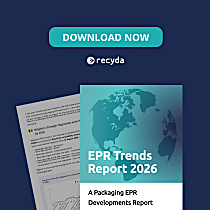Researchers use nickel from soil to break down hard-to-recycle PE into reusable chemicals

15 Feb 2023 --- Researchers from the University of York, UK, have discovered that using nickel from farming soil can break down PE into hydrogen and hydrocarbons to support the chemicals industry. PE is known for its difficult recyclability as it is resistant to high temperatures, pressure, mechanical force and chemical corrosion.
The plant biology researchers at York developed a biologically-bound nickel catalyst (ni-phytocat) to accelerate the depolymerization of PE. Hydrocarbons and hydrogen can create valuable materials in the packaging industry, improving the circularity of PE.
Polyolefins reportedly make up more than 90% of packaging materials and account for nearly half of the world’s plastic demand, with 36% of all plastics being PE. The study states that a carbon-neutral society can be realized by utilizing a circular carbon pathway, which combines recycling, biomass utilization, carbon capture and utilization.

“The transition to a low-carbon future has potentially increased demand for certain metals such as copper, nickel and lithium needed for low-carbon technologies, meaning that the extractive industry has an essential role to play toward [environmentally] sustainable development,” says the report.
 A biologically-bound nickel from soil is used to break down PE into reusable chemicals. Plant nickel recycles plastic
A biologically-bound nickel from soil is used to break down PE into reusable chemicals. Plant nickel recycles plastic
The researcher’s process extracts nickel from plant soil to function as a vital agent to make PE more recyclable. The nickel catalyst can break down PE, or mixed plastic waste, into hydrocarbons and hydrogen at 250 degrees Celcius using microwaves, compared to thermal depolymerization processes that use temperatures above 400 degrees Celsius.
This temperature reduction also decreases the amount of energy and gasses emitted from the process.
“Depending on the temperature, the time and the amount of nickel you put into the plant… you can change the relative amount of hydrogen [and] the amount of small aromatic molecules rather than having predominantly long chain aliphatics,” James Clark, the lead researcher, told Chemistry World.
Additionally, typical methods of refining nickel emit greenhouse gasses, degrade the environment and pose health risks to those working on it. However, the discovery of extracting nickel from metal-contaminated soils that cannot be used for agriculture opens new doors for the use of nickel to increase recyclability.
“Metal hyperaccumulating plant species represent a substitute for mining extractions to produce useful and effective catalysts in many fields of organic synthesis,” adds Claude Grison, director of research at the Laboratory of Bio-inspired Chemistry and Ecological Innovations, France.
Single-step process
This depolymerization process does not require added hydrogen or artificially fabricated metal catalysts. The single-step process typically takes up to 70 seconds to transform a sample of low-density PE into liquid hydrocarbons (40–60% oil yield), hydrogen (11–30% gas yield) and filamentous carbon (25–37% solid yield), depending on the varying catalyst to polymer weight ratios.
The enhancement of (de)hydrogenation, decarboxylation and cyclization utilizing Ni-phytocat can be established as a proof of concept to advance and enable the selective transformation of polymeric consumer products, paving the way to harness the complete circular chemical potential of these future feed-stocks.
The researchers believe this product flexibility could be essential given the shifting and politically dependent balance in energy requirements and the emergence of the hydrogen economy.
“Our work emphasizes the importance of the following UN sustainable development goals: affordable clean energy, industry, innovation, infrastructure and climate action,” they say.
By Sabine Waldeck











